On October 18, 2018, the day of IWHR’s 60th anniversary, the institute organized the Forum on Modern Water Governance and Technological Innovation that was attended by the Minister of Water Resources of China, Mr E Jingping, with a speech stressing the new Chinese water governance principles of “prioritizing water conservation, balancing spatial distribution, taking systematic approaches and giving full play to the roles of both government and market”.
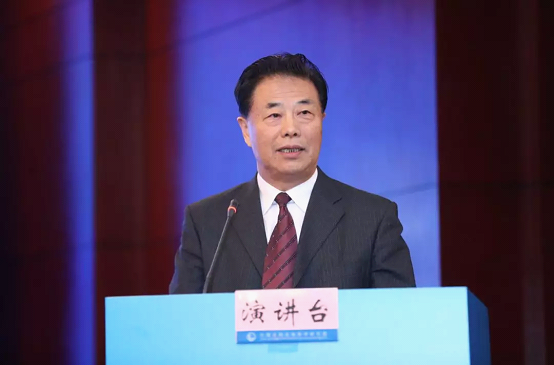
Mr E Jingping, Minister of Water Resources of China
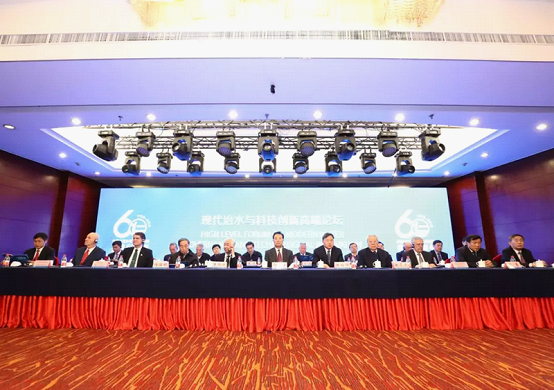
Minister E conveyed the comments from Mr Hu Chunhua, vice premier of the State Council, who said the fruitful achievements IWHR has made in the past 60 years in scientific and technological researches and human resources training have significantly pushed forward the leapfrog development of the water and hydropower sectors in China.
The vice premier also called on all the water researchers to promote systematic institutional reform, enhance researches on major strategies and key technologies, overcome difficulties to make progress, and contribute to the sustainable and healthy economic and social development and to the realization of the Chinese dream as well as the great rejuvenation of the Chinese nation.
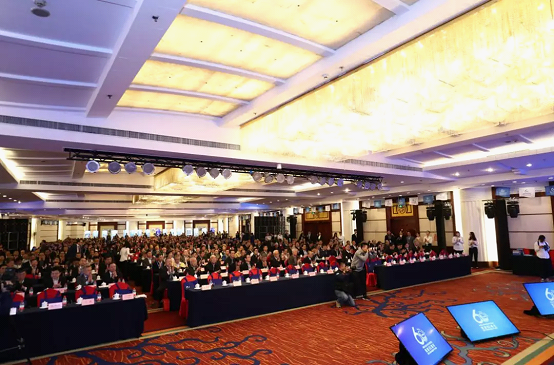
In his speech, Mr E Jingping emphasized the importance of scientific and technological innovation, which he said is the main engine giving key impetus to the development of water resources. For a long time, Chinese researchers have focused on the national demands and made tremendous progress in a variety of fields, including sedimentation research, damming technologies, water allocation, hydrological forecast, etc. The rate of contribution of scientific and technological progress to water resources development has reached 53.5%. IWHR as the leading and major force has made enormous and untiring efforts while evolving for 6 decades, significantly contributing to the progress and development of modern water governance.
Mr E said that 1) in terms of key scientific and technological problem solving, IWHR has focused on the demanding needs of national economic and social development to complete a large amount of important researches; 2) in terms of research platform development, IWHR has gradually established a complete set of research disciplines with outstanding characteristics and advantages, improving both research infrastructures and competitiveness; 3) in terms of talent cultivation, IWHR has over years trained a myriad of researchers and scholoars for water and hydropower sectors; and 4) in terms of international exchange and cooperation, IWHR has actively implemented the “inviting in” and “going ou” strategies to push the institute and Chinese water industry as well to the global arena. For 60 years, IWHR has written a splendid chapter in the Chinese history of water and hydropower development.
Mr E pointed out profound changes have occurred in terms of the major contradiction of water governance. Historically, the key water problem in China was to fight against floods and droughts. However, as the nation develops, water scarcity, damages to water ecology and water environmental pollution are happening on a regular basis. Therefore, the main contradiction of current water governance has undergone profound changes, and it is necessary to shift from changing nature and conquering nature to adjusting human behaviors and correcting wrong human behaviors. To promote the reform and development of water conservancy in the new era, we must accelerate the transformation of China's water control ideas, grasp a premise, and handle three relationships. Firmly grasp the premise of water conservation, profoundly understand the major significance and connotation requirements of water conservation priority, and regard water conservation as the primary option for solving the three major water problems in China, and fully water saving as water resources development, utilization, protection, allocation, The premise of scheduling. Handle the relationship between water and economic and social development, truly implement the requirements for water demand; handle the relationship between water and other elements in the ecosystem, and consider water management and mountain management, forest management, land management, lake management and grass treatment; The relationship between the government and the market, the government must not be absent from the issue of water control, and it must not be soft. At the same time, it must fully exert its market role through economic means such as price leverage.
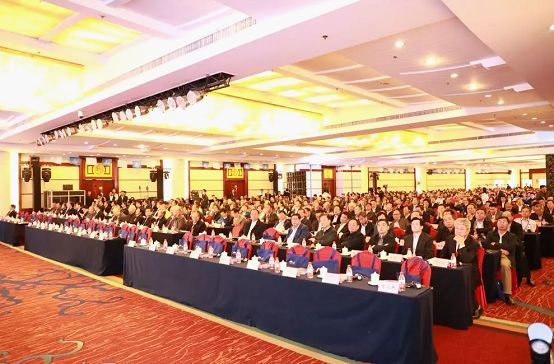
E Jingping stressed that to promote the reform and development of water conservancy in the new era, we must accurately grasp the key points of China's current water control work, from changing nature and conquering nature to adjusting people's behaviors and correcting people's wrong behaviors, which means that China's water control The focus of work will also change accordingly. The Ministry of Water Resources must adhere to the problem-oriented working style, focus on the coordinated development of Beijing-Tianjin-Hebei region and the development of the Yangtze River Economic Belt, promote rural revitalization, win the fight against poverty, and accelerate the improvement of river governance, reinforcement of dangerous reservoirs, management of small and medium-sized rivers, prevention and control of mountain floods, consolidation of rural drinking water safety, comprehensive improvement of rivers and lakes, and the completion of water conservancy infrastructure.
Regarding the strong supervision of water industry, it is necessary to propose quantifiable and operational indicators and lists in terms of water saving priority, water demand, and ecological water quantity according to the natural conditions of different river basins and different regions and economic and social development. A set of robust standards, norms and institutional systems should be established to delineate the red line of human behavior.
To focus on the outstanding problems in the management of rivers and lakes, focus needs to be put on the "basins of water" and "water in the basins". With the full implementation of the river chief system and the lake chief system as the starting point, the rivers and lakes special actions must be carried out to achieve a fundamental improvement of rivers and lakes. It is necessary to establish a national unified and hierarchical supervision system, use modern supervision methods, discover problems through strong supervision, and promote the adjustment of human behavior through strict accountability, and correct wrong human behavior.
E Jingping pointed out three combinations for all research institutes: 1) the combination of long-term goals with the phased tasks, firmly grasp the direction of water science and technology innovation, and further clarify the objectives and tasks of water science and technology innovation in the next period in accordance with priorities for different periods of time, and strive to achieve major breakthroughs as soon as possible; 2) the combination of strategic research and basic research to promote water science and technology innovation, implement the new development concepts, promote high-quality development, build beautiful China, revitalize the rural areas, strengthen water security research related to major national strategies, and consolidate basic work such as regulations, technical standards, and measurement and monitoring; and 3) the combination of scientific research with application to increase the research and development of advanced practical technologies and products, strengthen the promotion and application of research achievements and technical services, and apply them to the modernization of water modernization.
E Jingping emphasized that, as the national team for China's water science and technology innovation, IWHR should focus on building a world-class water and hydropower research institute at a new historical starting point, in accordance with the disciplinary development guidance of "emphasizing key disciplines, consolidating advantageous disciplines, encouraging new disciplines and enhancing inter-disciplines" to build a major strategic research base for water resources, a research and development base for water and hydropower technology, a high-quality innovative talent training base, and an international water science and technology cooperation and academic exchange base.
Focus must be given to 1) water saving priority and research on water conservation and protection; 2) spatial balance as well as water resources optimization and allocation research; 3) system governance as well as the research of multidisciplinary technology integration; 4) functions of both “two hands” as well as the study of water control system and mechanism; 5) improvement of flood control and drought relief projects as well as the research of engineering safety and security technology; 6) “Belt and Road” initiative as well as the participation in global water governance research.
Lu Guihua, Vice Minister of the Ministry of Water Resources, attended the meeting and read the speech of Qian Zhengying, former vice chairman of the National Committee of the Chinese People's Political Consultative Conference. Yan Zhiyong, Chairman of China Electric Power Construction Group, and Benedicto Braga, President of the World Water Council, delivered a speech at the meeting.
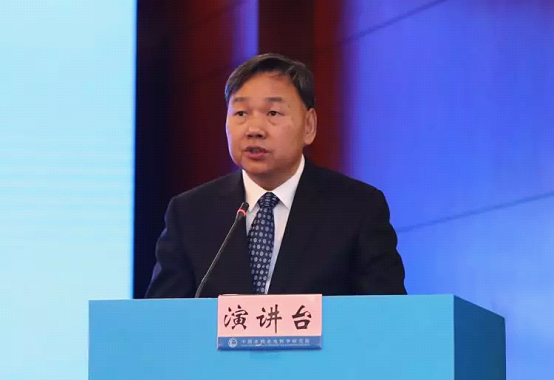
Lu Guihua, Vice Minister of the Ministry of Water Resources
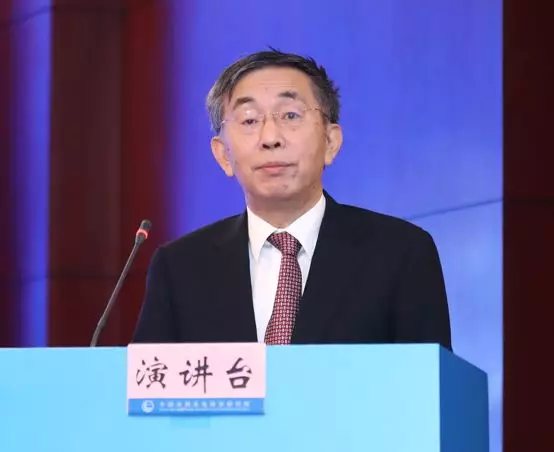
Yan Zhiyong, Chairman of China Electric Power Construction Group
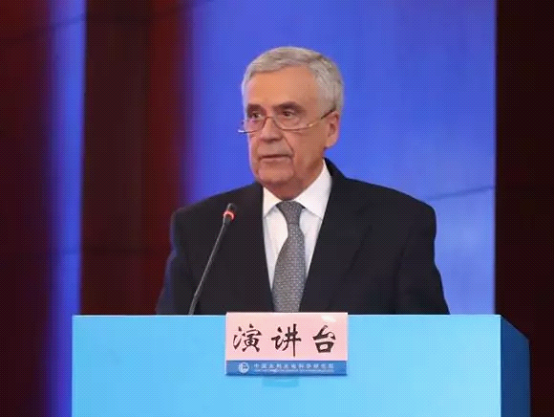
Benedito Braga, president of WWC
Kuang Shangfu, President of China Institute of Water Resources and Hydropower Research, comprehensively reviewed the development history of the institute, and summarized the achievements in personnel training, discipline development, infrastructure and platform construction, scientific research achievements, scientific and technological support, cooperation and exchanges, and prospects for new achievements. We must hold high the great banner of Xi Jinping's new era of socialism with Chinese characteristics, thoroughly implement the new development concept, actively implement water governance policy of the new era, strive to understand the "five things", and effectively identify the key links to solve the new and old water problems, and write a new chapter in the grand book of water development.

Kuang Shangfu, president of IWHR
Zeng Dalin, secretary of the Party Committee of IWHR, presided over the meeting. Vice President Yang Xiaodong presided over the awarding ceremony. Vice Presidents Wang Xiaogang and Peng Jing announced the winners of all the six awards, namely, the Lifetime Honor Award, Outstanding Alumni Award, Outstanding Contribution Award for International Cooperation, Outstanding Woman Award, Excellent Young Professionals Award, and Excellent Achievement Award.
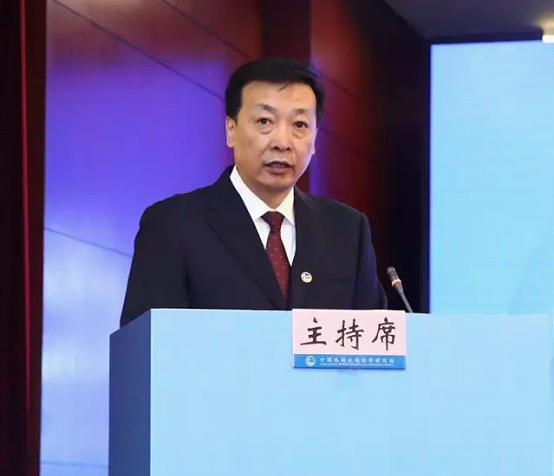
Zeng Dalin, secretary of the Party Committee of IWHR
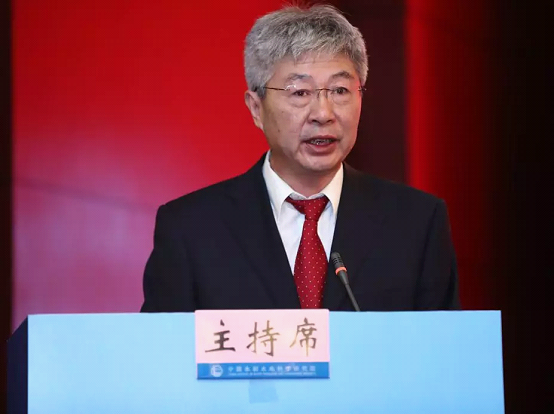
Yang Xiaodong, vice president of IWHR

Wang Xiaogang, vice president of IWHR
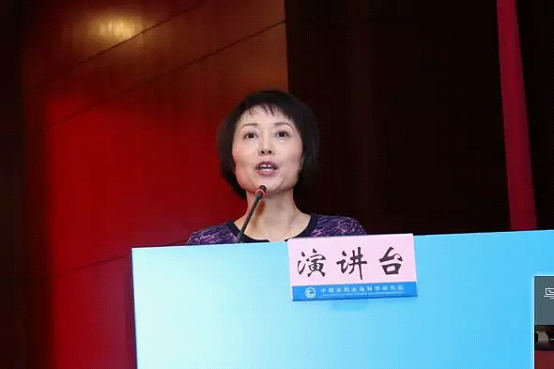
Peng Jing, vice president of IWHR
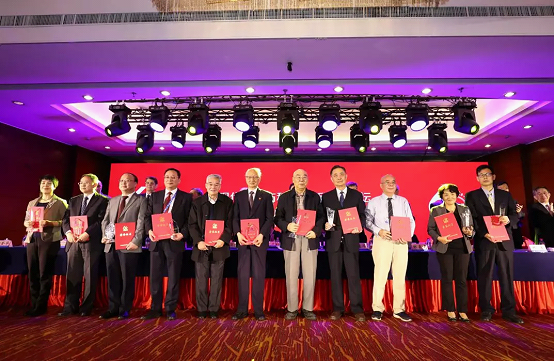
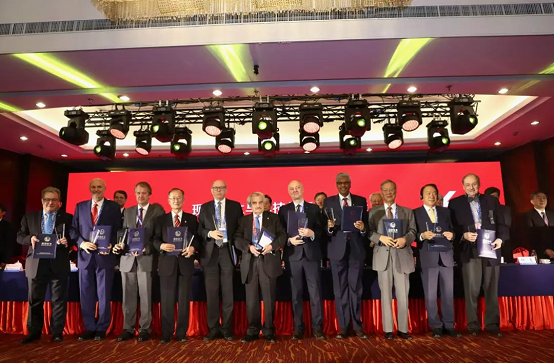
Hu Chunhong, vice president of IWHR, presided over the session of keynote reports. Zhong Denghua, academician of the Chinese Academy of Engineering and president ofTianjin University, Felix Reinders, President of the International Irrigation and Drainage Committee (ICID), and Wang Hao, academician of the Chinese Academy of Engineering and director of the State Key Laboratory of Simulation and Regulation of Water Cycle in River Basin, delivered keynote reports on "Smart Dam", "Water-Food-Energy Triology" and "Nature-Human Coupled Water Cycle: Theory, modelling and Regulation".
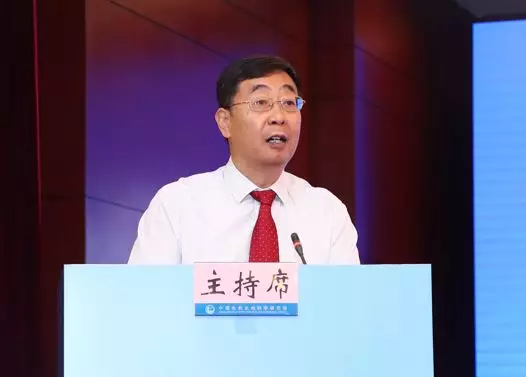
Hu Chunhong, vice president of IWHR

Zhong Denghua, academician of the Chinese Academy of Engineering and president of Tianjin University

Felix Reinders, President of the International Irrigation and Drainage Committee (ICID)
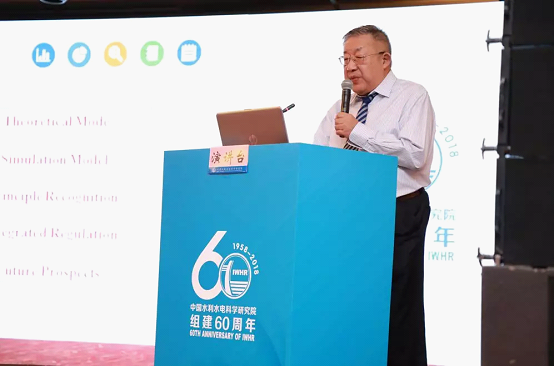
Wang Hao, academician of the Chinese Academy of Engineering and director of the State Key Laboratory of Simulation and Regulation of Water Cycle in River Basin

